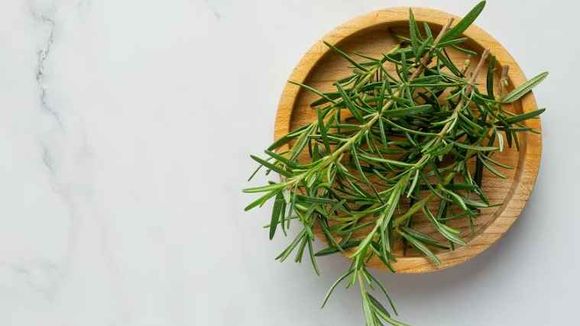Why do we suffer from sinusitis and clogged sinuses?
Sinusitis occurs when the tissue covering the sinuses becomes swollen or inflamed. It occurs as a result of an inflammatory reaction or infection by a virus, bacterium or fungus. When sinus openings become clogged or too much mucus builds up, bacteria and other germs can grow more easily. 1
Sinusitis can occur in a variety of conditions, most often colds and allergies. They can cause too much mucus to secrete or block the sinuses from opening.
A distorted nasal septum, nasal bone spur, or nasal polyps can also block the opening and normal function of the sinuses. Chronic infections can cause swelling and inflammation of the mucous membrane, which can also block the sinuses. 2
Generally speaking, sinus blockage occurs when mucus in the nasal passages does not drain normally, causing an accumulation that blocks the sinuses. This is usually due to a condition that has other symptoms.
The pressure and pain of sinus congestion can be felt behind the forehead, eyes, cheeks, or jaw, depending on which types of sinuses are affected. Still, many natural home remedies can help a person feel better, including hydration, inhaling steam, and putting a warm, wet towel on the face.
Essential oils for sinusitis and nasal congestion

To date, we know that essential oils are a natural alternative to synthetic drugs and some oils can relieve the symptoms of nasal congestion, promoting normal breathing. These oils have other health benefits that deserve to be given a few lines.
Essential oils have been used for centuries as a natural way to maintain emotional and physical health. When people start to worry about synthetic drugs because of side effects or other reasons, they may look for natural remedies, such as essential oils, herbal extracts and tinctures, homeopathic remedies, and more. 3
Some people use over-the-counter decongestants or antibiotics to treat sinus congestion and sinus infections. These drugs are not suitable for everyone. Decongestants may interact with prescription drugs and are not recommended for people with multiple diseases, as well as not suitable for pregnancy or high blood pressure.
Some essential oils are more promising means of fighting sinus infections than others. Here are some to have on hand when you need relief from a stuffy nose.
Peppermint oil (MENTHA PIPERITA)

This strong oil contains menthol, which provides a cooling effect when inhaled it. Inhaling such oil can trigger the mucus receptors on your nose to reopen the airways for easier breathing. Some research suggests that it may also act as an antibacterial agent and reduce inflammation. However, other studies have shown that menthol may have a controversial effect. 4
Eucalyptus oil (EUCALYPTUS GLOBULUS, EUCALYPTUS RADIATA)
A common compound in over-the-counter decongestants, eucalyptus oil can relieve symptoms of sinus infection by reducing headaches and releasing stuffy nose.
Tea tree oil (MELALEUCA ALTERNIFOLIA)
Often used to treat fungal problems, tea tree oil has antiseptic, antibacterial, and anti-inflammatory properties. Inflammation is a common cause of sinus congestion, so applying tea tree oil can reduce it.
Rosemary oil (ROSMARINUS officinalis)

The sharp aroma of rosemary makes it preferred for nasal congestion. Research shows that it has anti-inflammatory properties and is a rich source of antioxidants that help your immune system fight inflammation and pathogenic microorganisms. 5
Lemon oil (CITRUS LIMONUM)
Vitamin C is great when you have a cold not only as an oral remedy. Citrus essential oil can help you with a stuffy nose and promote the patency of sinus openings.
Sage oil (SALVIA SCLAREA)
Sage oil acts as a natural antimicrobial agent, making it useful for fighting the symptoms of sinus infection caused by bacteria.
Clove oil (SYZYGIUM AROMATICUM)
The spicy aroma of cloves can wake you up, and the oil contains natural antiseptic and antifungal components that reduce inflammation and help drain the sinuses.
What Studies Say About Essential Oils
A 2006 scientific publication found that tea tree oil (Melaleuca alternifolia) has antiseptic, antibacterial, and anti-inflammatory properties. Since inflammation of sinus tissue and bacteria are often to blame for sinus congestion, tea tree oil can help. 6
Researchers in a 2009 study found that 1.8 cineole, which is the main component of eucalyptus oil (Eucalyptus), is an effective and safe treatment for sinusitis that does not include antibiotics. According to the National Association for Holistic Aromatherapy (NAHA), 1.8 cineole helps clear the air of bacteria and other microbes. It can also help clear the airways of mucus and is a natural cough suppressant. 6
With regard to peppermint (Mentha), the main compound in peppermint oil is menthol. Menthol is found in some over-the-counter medications, such as lozenges and nasal sprays. However, some studies have shown that menthol is more likely to increase congestion than reduce them. Menthol creates a cooling sensation that leads users to believe that their nasal passages are cleaner and they breathe better, even though the ducts are still clogged.
Other natural remedies for sinusitis and nasal congestion
Use an air humidifier
Moisturizer can be a quick and easy way to reduce sinus pain and relieve nasal congestion. The machine converts water into moisture, which slowly fills the air, increasing the humidity in the room.
Take a shower
Have you ever had a fresh cold or with your first flu symptoms, taken a hot shower and felt lighter? The secret is in the hot water and the steam that is released. It can help dilute the mucus in your nose and reduce inflammation.
Hydrate through more water

It's important to drink plenty of fluids if you suspect you have a cold or have flu symptoms. Maintaining optimal hydration levels can help dilute the mucus in your nasal passages, pushing fluids out of your nose and reducing pressure in your sinuses. Less pressure means less inflammation and irritation.
Use saline spray
Make hydration even better with saline, salt water solution. The use of a nasal physiological spray can increase moisture in the nostrils and unclog the nose.
However, some saline sprays also include a decongestant drug. Ask your doctor for advice before you start using physiological sprays with decongestants.
Apply a warm compress
A warm compress can help relieve some symptoms of nasal congestion by opening the nasal passages from the outside.
To make a warm compress, first soak a towel in warm water. Then squeeze the water out of the towel, then fold it and put it on your nose and forehead.
Heat can provide comfort in any pain and help relieve inflammation in the nostrils. Repeat as often as necessary.








